-
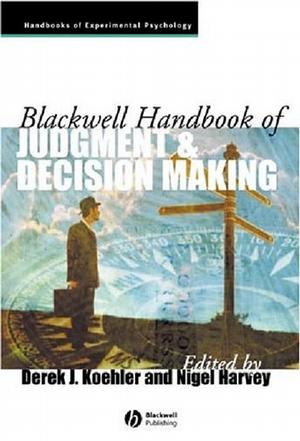
Blackwell Handbook of Judgment and Decision Making (Blackwell Handbooks of Experimental Psychology)
The Blackwell Handbook of Judgment and Decision Making is a state-of-the art overview of current topics and research in judgment and decision making. Chapters are contributed by experts in the field from various disciplines such as psychology, cognitive science, business, and law. The selection of topics reflects current trends and controversies on judgment and decision-making. Each chapter includes an overview of the past followed by current work and current directions in the field.The book:- provides a glimpse at the many approaches that have been taken in the study of judgment and decision making, including bounded rationality, computational modelling, and the heuristics and biases approach- portrays the major findings in the field and covers topics such as probablistic reasoning, hypothesis testing, multiattribute choice, and decision making under risk and uncertainty- presents examinations of the broader roles of social, emotional, and cultural influences on decision making- explores applications of judgment and decision making research to important problems in a variety of professional contexts, including finance, accounting, medicine, public policy, and the law
The Blackwell Handbook of Judgment and Decision Makingis a state-of-the art overview of current topics and research in judgment and decision making. Chapters are contributed by experts in the field from various disciplines such as psychology, cognitive science, business, and law. The selection of topics reflects current trends and controversies on judgment and decision-making. Each chapter includes an overview of the past followed by current work and current directions in the field.The book:- provides a glimpse at the many approaches that have been taken in the study of judgment and decision making, including bounded rationality, computational modelling, and the heuristics and biases approach- portrays the major findings in the field and covers topics such as probablistic reasoning, hypothesis testing, multiattribute choice, and decision making under risk and uncertainty- presents examinations of the broader roles of social, emotional, and cultural influences on decision making- explores applications of judgment and decision making research to important problems in a variety of professional contexts, including finance, accounting, medicine, public policy, and the law -
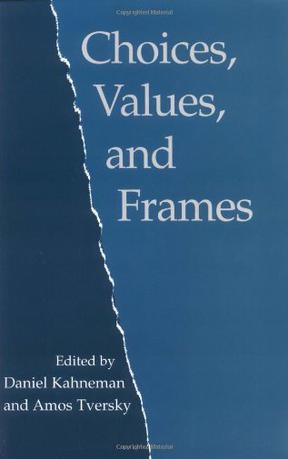
Choices, Values, and Frames
This book presents the definitive exposition of 'prospect theory', a compelling alternative to the classical utility theory of choice. Building on the 1982 volume, Judgement Under Uncertainty, this book brings together seminal papers on prospect theory from economists, decision theorists, and psychologists, including the work of the late Amos Tversky, whose contributions are collected here for the first time. While remaining within a rational choice framework, prospect theory delivers more accurate, empirically verified predictions in key test cases, as well as helping to explain many complex, real-world puzzles. In this volume, it is brought to bear on phenomena as diverse as the principles of legal compensation, the equity premium puzzle in financial markets, and the number of hours that New York cab drivers choose to drive on rainy days. Theoretically elegant and empirically robust, this volume shows how prospect theory has matured into a new science of decision making. -
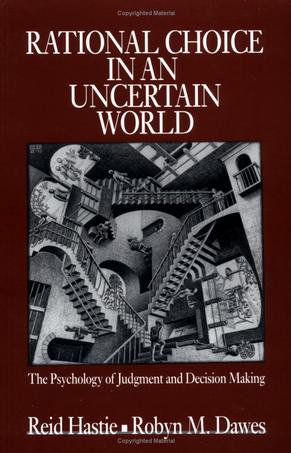
Rational Choice in an Uncertain World
First Edition, Winner of the prestigious William James Award from the American Psychological Association An understanding of the principles of rational decision making can help students improve the quality of their lives. Intended as an introductory textbook, the material in Rational Choice in an Uncertain World is not only of scholarly interest, but practical as well. Created specifically for courses on judgement and decision-making, this book makes research readily accessible to both undergraduate and graduate students. This Second Edition of the award-winning book, Rational Choice in an Uncertain World (1988) by Robyn M. Dawes, is sure to interest and enlighten students at all levels. This new edition features: * New student friendly chapter introductions as well as conclusions and cross-references between chapters. * Award-winning authors are respected professors with over 30 years of experience in the field. * Practical, everyday examples from such areas as finance, medicine, law, and engineering.* Comprehensive and up-to-date information keep this edition abreast of the changing ideas within the discipline * Additional discussion of the descriptive, psychological models of decision making to expand upon the original emphasis on normative, rational, 'Expected Utility Theory' models. Equipped with this knowledge and an understanding of the principles of rational decision making, both undergraduate and graduate students can help improve the quality of their choices and, thus, their life. -
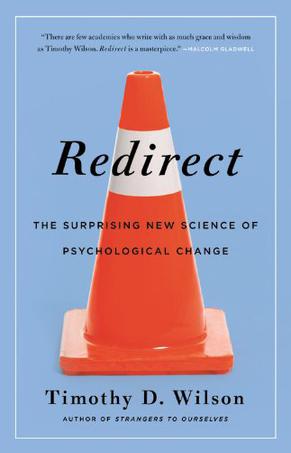
Redirect
What if there were a magic pill that could make you happier, turn you into a better parent, solve a number of your teenager's behavior problems, reduce racial prejudice, and close the achievement gap in education? Well, there is no such magic pill-but there is a new scientifically based approach called story editing that can accomplish all of this. It works by redirecting the stories we tell about ourselves and the world around us, with subtle prompts, in ways that lead to lasting change. In Redirect , world-renowned psychologist Timothy Wilson shows how story-editing works and how you can use it in your everyday life. The other surprising news is that many existing approaches-from the multi-billion dollar self-help industry to programs that discourage drug use and drinking-don't work at all. In fact, some even have the opposite effect. Most programs are not adequately tested, many do not work, and some even do harm. For example, there are programs that have inadvertently made people unhappy, raised the crime rate, increased teen pregnancy, and even hastened people's deaths-in part by failing to redirect people's stories in healthy ways. In short, Wilson shows us what works, what doesn't, and why. Fascinating, groundbreaking, and practical, Redirect demonstrates the remarkable power small changes can have on the ways we see ourselves and the world around us, and how we can use this in our everyday lives. In the words of David G. Myers, "With wit and wisdom, Wilson shows us how to spare ourselves worthless (or worse) interventions, think smarter, and live well." -
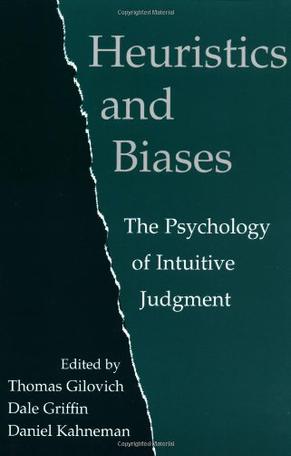
Heuristics and Biases
Is our case strong enough to go to trial? Will interest rates go up? Can I trust this person? Such questions - and the judgments required to answer them - are woven into the fabric of everyday experience. This 2002 book examines how people make such judgments. The study of human judgment was transformed in the 1970s, when Kahneman and Tversky introduced their 'heuristics and biases' approach and challenged the dominance of strictly rational models. Their work highlighted the reflexive mental operations used to make complex problems manageable and illuminated how the same processes can lead to both accurate and dangerously flawed judgments. The heuristics and biases framework generated a torrent of influential research in psychology - research that reverberated widely and affected scholarship in economics, law, medicine, management, and political science. This book compiles the most influential research in the heuristics and biases tradition since the initial collection of 1982 (by Kahneman, Slovic, and Tversky). -
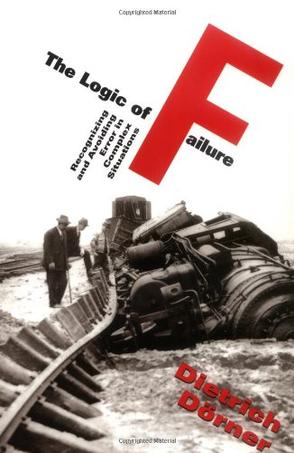
The Logic Of Failure
our modern world, even though it was appropriate to older, simpler times. Working with imagination and often hilarious computer simulations, Dietrich Dorner provides a compass for intelligent planning and decision-making that can sharpen the skills of managers and policy-makers everywhere.